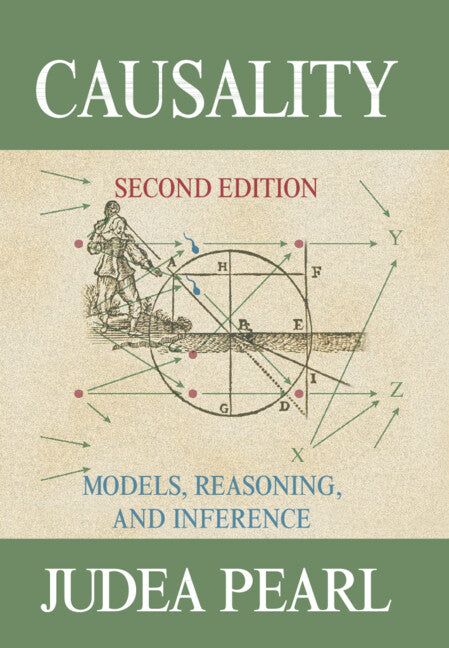Freshly Printed - allow 4 days lead
Couldn't load pickup availability
Causality
Written by one of the preeminent researchers in the field, this provides a comprehensive exposition of modern analysis of causation.
Judea Pearl (Author)
9780521895606, Cambridge University Press
Hardback, published 14 September 2009
484 pages, 124 b/w illus. 7 tables
26 x 18.5 x 3 cm, 1.03 kg
'Pearl's career has been motivated by problems of artificial intelligence, but the implications of this book are much broader. The distinctions he raises and the mathematical foundation he assembles are critical for every field of scientific endeavor. This updated edition of a modern classic deserves a broad and attentive audience.' H. Van Dyke Parunak, reviews.com
Written by one of the preeminent researchers in the field, this book provides a comprehensive exposition of modern analysis of causation. It shows how causality has grown from a nebulous concept into a mathematical theory with significant applications in the fields of statistics, artificial intelligence, economics, philosophy, cognitive science, and the health and social sciences. Judea Pearl presents and unifies the probabilistic, manipulative, counterfactual, and structural approaches to causation and devises simple mathematical tools for studying the relationships between causal connections and statistical associations. Cited in more than 2,100 scientific publications, it continues to liberate scientists from the traditional molds of statistical thinking. In this revised edition, Judea Pearl elucidates thorny issues, answers readers' questions, and offers a panoramic view of recent advances in this field of research. Causality will be of interest to students and professionals in a wide variety of fields. Dr Judea Pearl has received the 2011 Rumelhart Prize for his leading research in Artificial Intelligence (AI) and systems from The Cognitive Science Society.
1. Introduction to probabilities, graphs, and causal models
2. A theory of inferred causation
3. Causal diagrams and the identification of causal effects
4. Actions, plans, and direct effects
5. Causality and structural models in social science and economics
6. Simpson's paradox, confounding, and collapsibility
7. The logic of structure-based counterfactuals
8. Imperfect experiments: bounding effects and counterfactuals
9. Probability of causation: interpretation and identification
10. The actual cause.
Subject Areas: Artificial intelligence [UYQ], Philosophy of science [PDA], Philosophy of mathematics [PBB], Social research & statistics [JHBC], Analytical philosophy & Logical Positivism [HPCF5]


